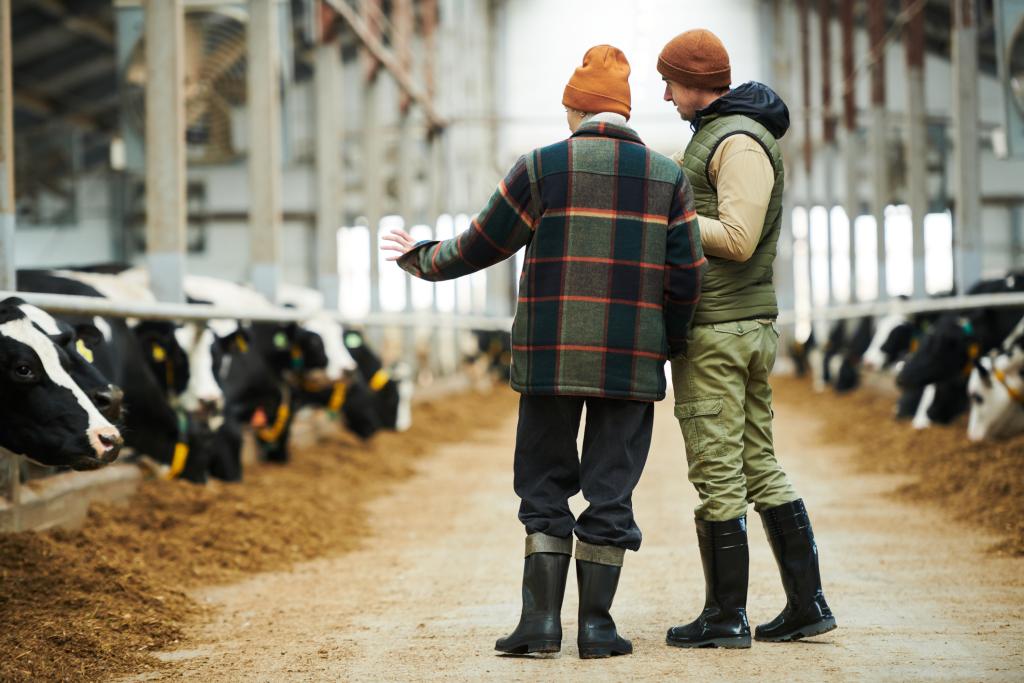
Living together without being married or in a civil partnership has become increasingly common. However, many people don’t realise that cohabiting couples do not have the same legal rights as married couples, no matter how long they’ve been together.
In farming, a cohabiting couple breaking up can have far reaching implications, often having a catastrophic impact on the farming family and the working dynamics of the farm itself. That’s where a cohabitation agreement can help. It’s a practical step to protect both partners, the farming business and clarify responsibilities.
Cohabitation break down – an example
Let’s look at an example – Jowan lives in the farmhouse on the family farm and his partner Demelza moves in. After several years of living together, Jowan and Demelza agree to make some major improvements to the farmhouse. They take out a joint mortgage against a part of the farmland to help part fund this. Demelza part funds the improvements with some of her own money and she makes some contributions to the mortgage repayments. After some time the relationship unfortunately breaks down and Demelza moves out.
The relationship may be over, but that may not be the end of the story as Demelza may have a claim for an interest in the farmhouse as the financial contribution she has made to the mortgage and the farmhouse improvements when they lived together where made if she can show she made these on the basis that there as an understanding between her and Jowan that she would have a share in the Property.
Demelza could apply to the Court for a declaration she had an interest in the farmhouse and an order the property to be sold.
The Court’s powers here are limited to deciding what Demelza’s interest in the property is and ordering a sale of the property. Unlike married couples, the Court has no discretionary powers to order a deferred sale nor will the fact that Jowan needs the farmhouse and the yard for his family farming business prevent a sale. If Jowan attempted to defend a claim brought by Demelza his legal costs to trial could be extensive.
Jowan could look to reach an agreement with Demelza whereby he ‘buys out’ her alleged interest in the farmhouse by paying her a lump sum.
However, with limited borrowing capacity it could be extremely difficult, if not impossible, for Jowan to raise another mortgage or extract money from the farming business without damaging it. All the land on his farm is needed for the business and to sell part of this off would damage the business. This cash flow issue could cause huge problems for the business and the wider family members who work for it.
How a cohabitation agreement could have helped
A cohabitation agreement is a legally binding document that outlines how a couple will handle certain aspects of their relationship when cohabiting. It covers important financial matters, property ownership, and what happens if the relationship ends.
If Jowan had recorded his and Demelza’s intentions in a cohabitation agreement before she invested in the farmhouse this could have potentially prevented this costly and stressful dispute.
For example, Jowan could have confirmed in a Cohabitation Agreement that on separation he would be able to refund Demelza’s investment by way of payment by instalments and/or over a specific timescale, which would prevent him having to raise a large lump sum at short notice.
A well-drafted cohabitation agreement will be legally binding, providing certainty and reassurance for both parties and their families.
Both parties should receive independent legal advice on any agreement otherwise there is a risk that an argument can be raised that it is not legally binding.
If the couple plan to get married or are already married, then a pre-nuptial or post-nuptial agreement can offer similar protection.
It is important to seek advice from a solicitor with experience in this field and an understanding of the complexity and unique issues of farming businesses.
